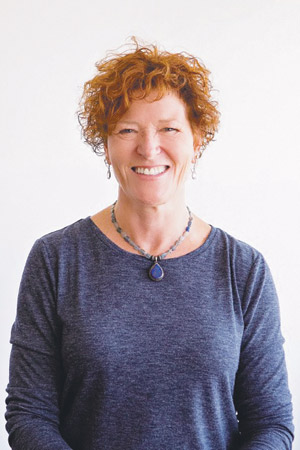
By Debbie Gardner
debbieg@thereminder.com
A lifelong resident of East Longmeadow, Massachusetts, Sheila Magalhaes turned to yoga and meditation in the 1990s to mitigate the stress and demands of new motherhood. Inspired by how these practices changed her life, in 1993 she co-founded Heartsong Yoga, teaching these practices in schools, corporate settings and the community for more than 20 years.
Thrilled to now see these ancient Eastern complimentary health care practices gaining more mainstream attention, Magalhaes shared her thoughts about meditation and aging well.
Q: Recent research cites the anti-aging effects of meditation. Do you believe they might be on to something?
“I am not a scientist, but I am a dedicated student of yogic philosophy and history. One of the most important teachings on the benefits and practices of meditation was recorded around 200 BC by the Indian scholar Patanjali in ‘The Yoga Sutras.’ Compiling information passed down orally for thousands of years, he wrote that mindfulness would ‘quiet the thought waves of the mind’ and lead to joy and happiness for those who meditated regularly over a long period of time.
“Today scientists can actually show us that our thoughts do indeed behave like waves, rising and falling just as thoughts, feelings, and emotions inevitably rise and fall away. Moreover, scientists are reporting promising results as they study meditation applied to depression, anxiety, trauma, aging, mental clarity, pain reduction, heart rate, and blood pressure, as well as how meditation can support individuals with heart disease, cancer, diabetes and more.
“I believe scientists are onto something yogis have known for centuries! The sutras tell us if we meditate over a long period of time without attachment to the results, we can find acceptance with what is happening in our lives. Today, science shows that when we are more at ease, we can bring health and vitality to all of our systems.”
Q: As a longtime teacher, have you seen other benefits of embracing meditation?
“I have been privileged to enjoy long term relationships with students who have shared how meditation and mindfulness has improved their lives in meaningful and often very significant ways. Most have quickly found relief from anxiety and stress, and that regular meditation can help them maintain a sense of calm when navigating the challenges of their everyday lives. The philosophy of meditation says that everything is impermanent, that everything changes; practicing regularly helps students to be the compassionate, loving and caring observers of their lives. Meditation teaches that we are ‘not our thoughts’ and that when we stop identifying with the thoughts, the waves slow down and we rest in the present moment where all is well. This can provide relief for those who are always rushing and hurrying and looking to the future to find happiness, as they discover that happiness is available in the here and now!
“Like my students, I struggle with keeping a regular practice and remembering to apply the principles to my life. But I have these powerful tools to rely on and come back to, and for that,
I am grateful.”
Q: Can you outline a simple meditation practice for PRIME readers to try out?
“I invite readers to try something that sounds simple, but can be challenging. Take five minutes in the morning, before you hit the ground running, and find a place to sit quietly – maybe a favorite chair or on your bed with support from the headboard. Then set a timer. Close your eyes, and shift your breathing so it is in and out through your nose, in a smooth and comfortable pattern. Consider your posture, it is important to have your spine nice and long, and your shoulders back. Put your full attention to the rise and fall of the chest, ribs and belly, and the feeling of the breath in your nostrils. This is the beginning of mindfulness, or paying attention ‘on purpose.’ Then let your thoughts just wander in and out, and work on not getting caught up in the stories or the images, just let them go like clouds floating in a summer sky.”